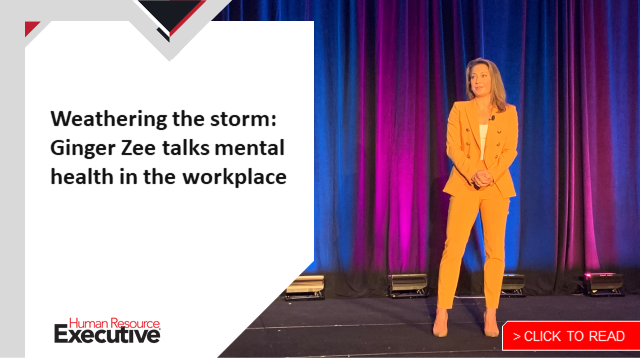Only one in five workers feel comfortable talking about mental health with HR, according to a JobSage survey of more than 2,000 working Americans.
What it means to HR leaders
Mental health has become one of HR’s biggest responsibilities over the past couple of years as rates of depression, anxiety, stress and burnout are all soaring amid the pandemic.
But despite more attention on the subject—and effort from HR leaders—most employees don’t feel comfortable discussing mental health with their HR leaders. And that’s a problem, says Kelli Mason, chief operating officer at JobSage.
“Given how few people have the time or money to discuss mental health with a therapist, and that work accounts for the bulk of many people’s stress, the fact that 80% of American workers don’t feel comfortable talking about mental health with HR is a borderline public health crisis,” she says.
 While the HR department can’t be employees’ in-office therapist, HR leaders should be the first line of defense for addressing the many stresses work causes, she says. “HR leaders must recognize the role they can play in supporting mental health and move beyond platitudes. This starts from the top,” she says.
While the HR department can’t be employees’ in-office therapist, HR leaders should be the first line of defense for addressing the many stresses work causes, she says. “HR leaders must recognize the role they can play in supporting mental health and move beyond platitudes. This starts from the top,” she says.
Related: Feeling HR burnout? 4 tips for self-care from HR leaders
The JobSage report finds that employees have some ideas on how they can feel more supported in regard to their mental health at work. To start, 47% of respondents want their company to commit to a healthy work-life balance, 42% want more time off, and 41% want greater flexibility.
Also importantly, many employees also want mental health to become a more open topic within the workplace. Nearly two in five (37%) said they’d like it to be discussed more often, especially through specialized training for things like stress management.
“HR should encourage executives to be open about their own struggles,” Mason says. “This creates a sense of safety that makes it easier for everyday employees to open up about mental health without fear of retaliation.”
The post Number of the day: Talking mental health with HR leaders appeared first on HR Executive.